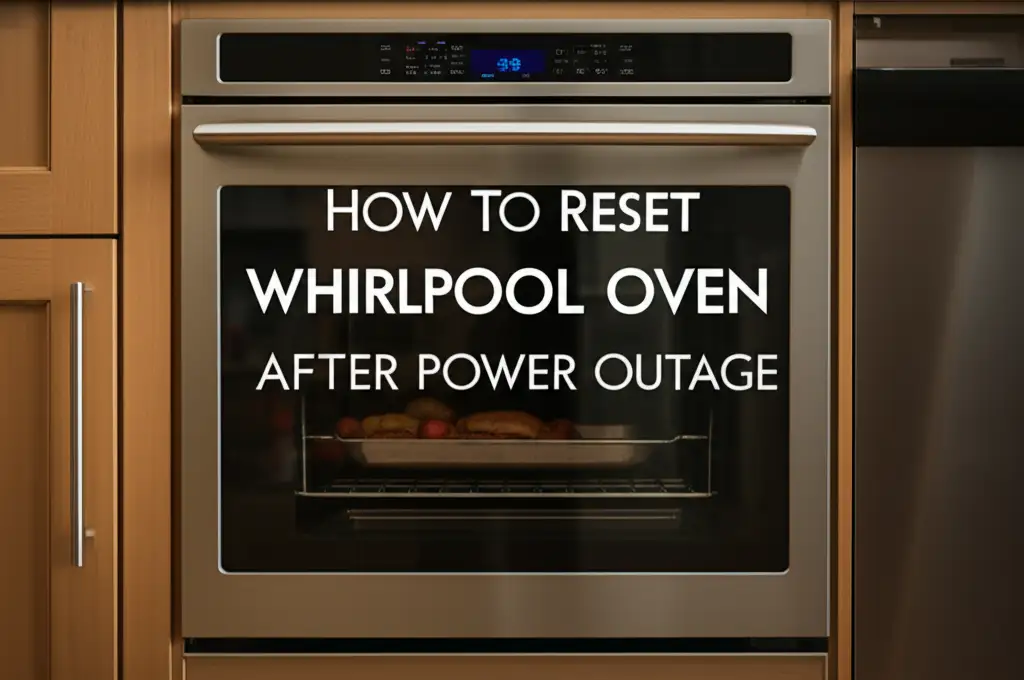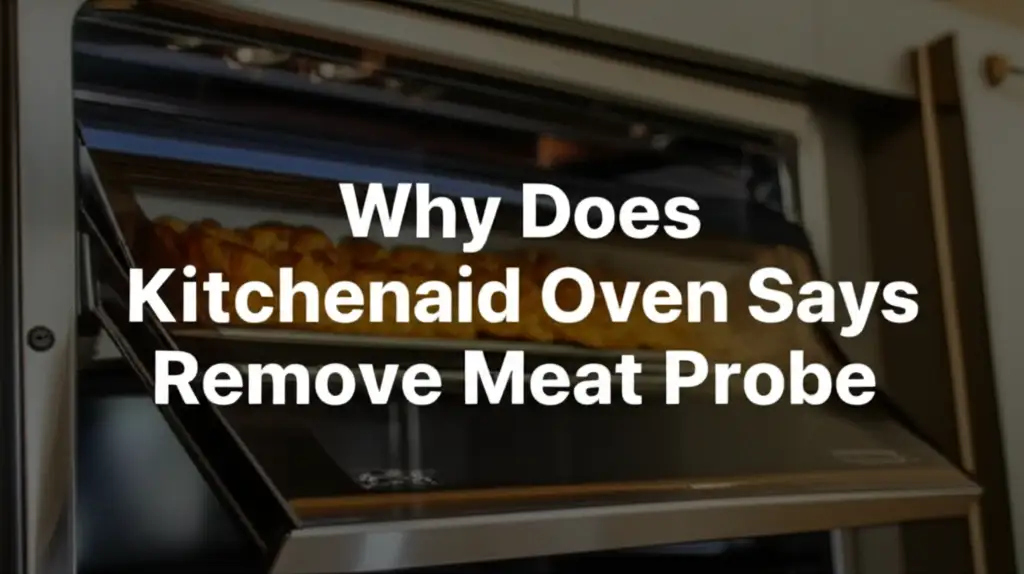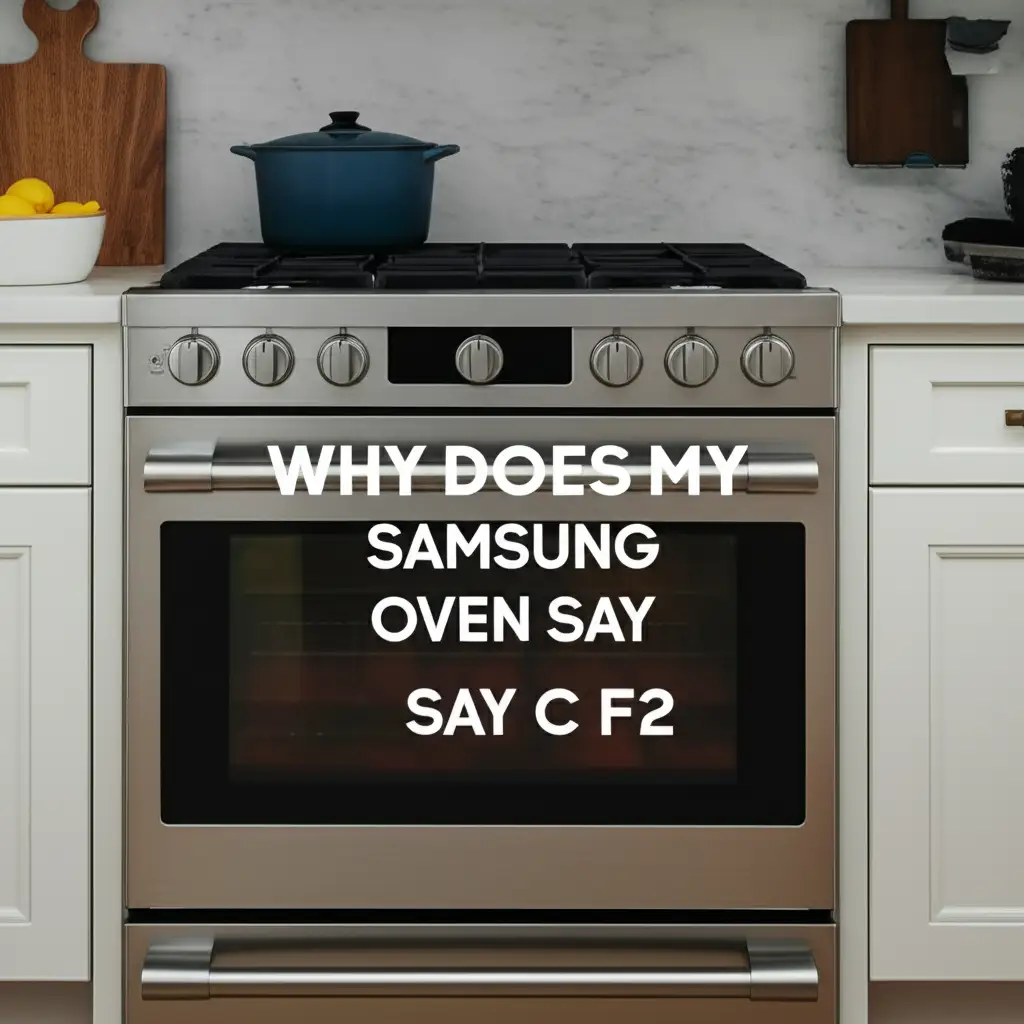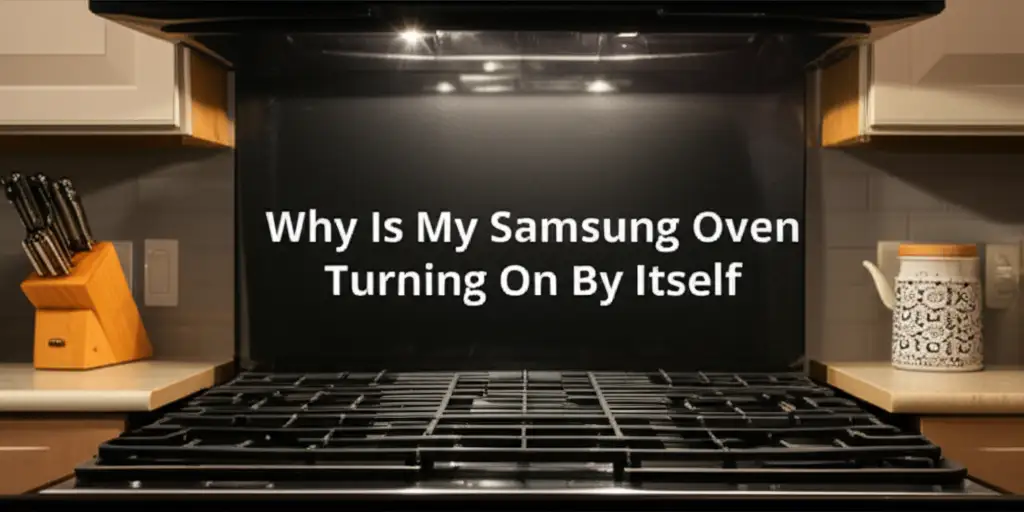· Todd Martin · Appliance Troubleshooting · 19 min read
Why Does My Electric Oven Keep Turning Off
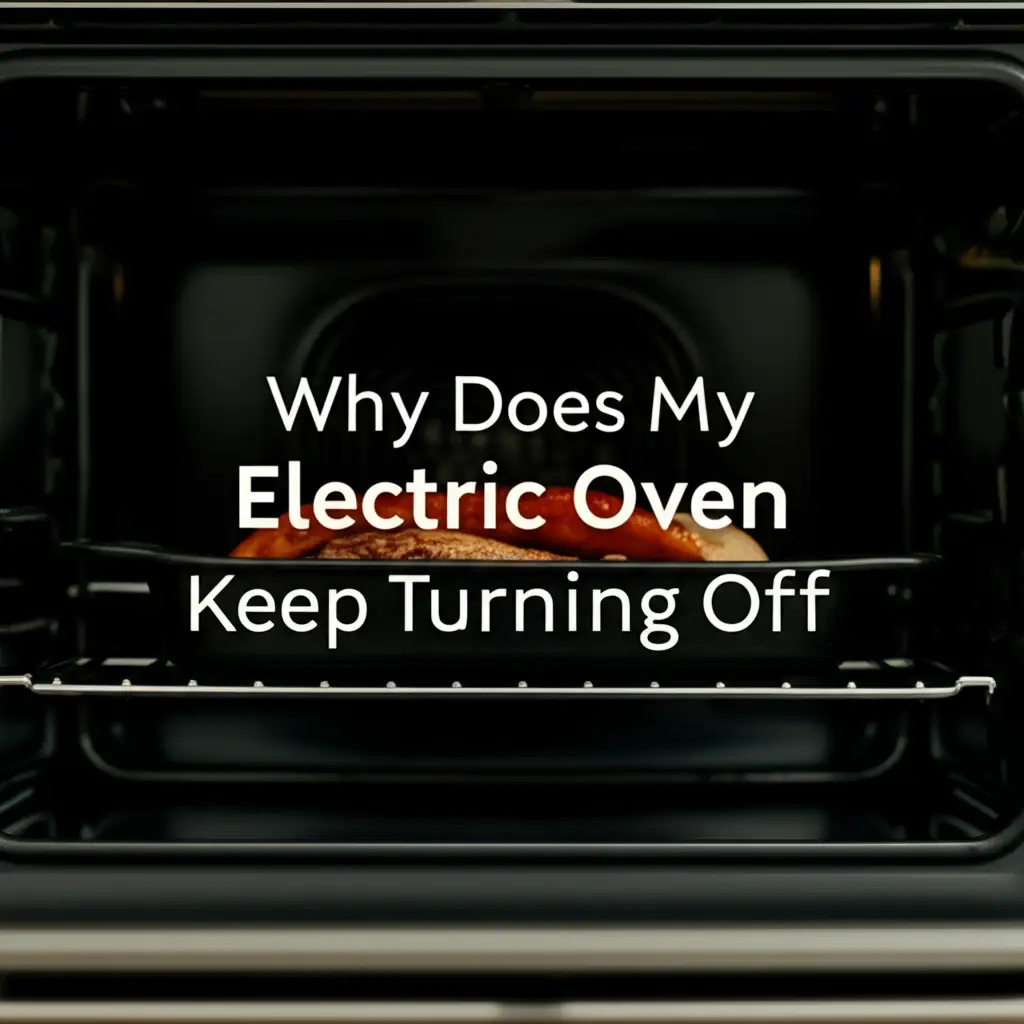
Why Your Electric Oven Keeps Turning Off: Common Fixes
Imagine this: You are halfway through baking a perfect cake. Suddenly, your kitchen goes quiet, and your electric oven keeps turning off. This is a very frustrating moment. You wonder if your meal is ruined. I know that feeling well.
An electric oven that repeatedly shuts down can disrupt your cooking. It can also cause safety concerns. Understanding why your electric oven keeps turning off helps you fix the issue. It can also help you prevent it from happening again. This article explains the main reasons your electric oven stops working. We cover everything from simple electrical issues to internal component failures. You will learn how to troubleshoot these problems effectively. We also discuss when it is best to call a professional for help.
Takeaway
- Check Electrical Supply: Make sure your circuit breaker is not tripped and the power outlet works.
- Prevent Overheating: Ensure proper oven ventilation and look for thermal fuse issues.
- Inspect Key Components: Faulty heating elements, temperature sensors, or control boards can cause shutdowns.
- Examine Wiring: Loose or damaged wires often lead to intermittent power.
- Call a Professional: Contact an appliance technician if you feel unsafe or if the issue is complex.
Why does my electric oven keep turning off?
Your electric oven keeps turning off usually due to electrical supply problems, internal overheating, a faulty thermal fuse, or issues with heating elements. Other causes include a malfunctioning temperature sensor, a defective control board, or loose internal wiring. Addressing these specific areas helps you identify and fix the problem.
Electrical Supply and Circuit Breaker Issues
Your electric oven needs a lot of power. It has a dedicated circuit in your home’s electrical system. Sometimes, the problem is not with the oven itself. It lies with the power supply. This is often the first place to check when your electric oven keeps turning off.
Tripped Circuit Breaker
The most common electrical issue is a tripped circuit breaker. An oven draws a lot of current, especially when it heats up. If the circuit is overloaded, the breaker will trip. This protects your home from electrical damage. When the breaker trips, power to the oven stops. It causes the oven to turn off.
You can check your main electrical panel. Look for a breaker switch that is in the “off” position or halfway between “on” and “off.” Flip it completely to “off” and then firmly back to “on.” If the breaker trips again quickly, there is a serious issue. This issue could be a short circuit in the oven or an overloaded circuit. Do not ignore repeated breaker trips. This points to a deeper electrical problem that needs professional attention. Ignoring it can be dangerous. It can lead to electrical fires.
Faulty Outlet or Power Cord
Less common, but still possible, is a faulty outlet or a damaged power cord. If your oven is plugged into an outlet, check the outlet itself. You can try plugging another high-power appliance into it to see if it works. If it does not, the outlet might be bad. A damaged power cord can also cut power to the oven. Look for fraying, cuts, or signs of burning on the cord.
Replacing a power cord is a job for a qualified technician. Tampering with electrical wiring can be dangerous. Remember, safety always comes first when dealing with electricity. Sometimes, the issue is not just the oven turning off, but it might involve other appliances on the same circuit. For instance, why does my gas oven keep tripping the electric can be related to similar electrical supply issues affecting the oven’s power.
Loose Electrical Connections
Inside your wall outlet or the oven’s junction box, connections can become loose. This can happen over time due to vibration or expansion and contraction from heat. A loose connection can cause intermittent power. The oven might work for a while, then suddenly turn off. Tightening these connections requires electrical knowledge and tools. If you are unsure, call a licensed electrician. You might notice that your electric oven only works sometimes, which is a key sign of intermittent power issues, often caused by loose connections or a weak power supply. For more details on this, you can check out why your electric oven only works sometimes. This can be a very frustrating problem, making it hard to plan meals.
Before you start any inspection, unplug the oven. Safety is important. Never work on an appliance that is still connected to power. You risk electrical shock. A visual inspection of the cord and plug can sometimes reveal obvious damage. If the plug feels unusually warm, it might indicate a bad connection.
Overheating and Thermal Fuse Protection
Electric ovens generate a lot of heat. They also have safety features to prevent them from getting too hot. When your electric oven keeps turning off, overheating is a very common cause. The oven has a component specifically designed for this.
The Role of the Thermal Fuse
Almost all modern electric ovens have a thermal fuse. This small, crucial component acts as a safety device. It is a one-time fuse that blows when the oven reaches an unsafe temperature. This prevents the oven from overheating and potentially causing a fire. Once the thermal fuse blows, it permanently cuts power to the oven. This means the oven will not turn back on until the fuse is replaced.
If your oven suddenly dies and will not restart, a blown thermal fuse is a prime suspect. This often happens after a self-cleaning cycle, which runs at very high temperatures. Sometimes, an internal component fails and causes the oven to get too hot. This can also blow the fuse. You must find the underlying cause of the overheating. Replacing the fuse without fixing the cause will just lead to another blown fuse.
Common Causes of Oven Overheating
Several factors can cause an oven to overheat. One common reason is poor ventilation. The oven needs to dissipate heat properly. If the vent ducts are blocked or dirty, heat can build up inside. This triggers the safety mechanisms. Make sure the area around your oven is clear. Keep the cooling fan running correctly.
Another cause can be a faulty temperature sensor. If the sensor reads the temperature incorrectly, the oven might continue to heat past its set point. This causes it to overheat. A defective control board can also send wrong signals, leading to excessive heat. Sometimes, a faulty heating element stays on too long. This also results in overheating. The back of your electric oven can get very hot, which is normal for heat dissipation. However, excessive heat indicates a problem. Understanding does the back of an electric oven get hot can help you determine if the heat is abnormal.
How to Check for Overheating
If your oven turned off suddenly and feels extremely hot, suspect overheating. Let the oven cool down completely for several hours. Then, try to reset the circuit breaker or plug the oven back in. If it still does not turn on, the thermal fuse likely blew. This requires a replacement.
Replacing a thermal fuse is not a simple task. It requires disassembling parts of the oven. You need to locate the fuse, often near the oven’s back or top. You must disconnect wires and install the new fuse correctly. Because it involves electrical components and disassembling, many people prefer to call a professional. Replacing the fuse often requires disconnecting other components. For example, some oven models, like those from Samsung, may have specific thermal fuse locations or more complex diagnostic procedures that lead to the oven turning off. You can find more information about these specific issues if your Samsung oven keeps turning off. A qualified technician ensures safety and proper repair.
Faulty Heating Elements and Their Impact
Your electric oven relies on heating elements to cook your food. These elements convert electricity into heat. If one of these elements fails, it can cause your oven to turn off. This is a common issue when your oven is not heating correctly.
Bake and Broil Elements
Electric ovens usually have two main heating elements: the bake element at the bottom and the broil element at the top. When you set your oven to bake, the bake element heats up. When you use the broiler function, the broil element gets hot. Both elements are crucial for proper oven operation. If either element shorts out or breaks, it can cause the oven to trip its circuit breaker or shut down. This happens because a faulty element can draw too much current.
You can often see a damaged element. Look for visible breaks, cracks, or blistering on the element’s surface. Sometimes, the element might not glow red evenly. It might only get hot in certain spots. An element that short-circuits can instantly cut power to the oven. This is a safety measure to prevent further damage. If your oven stops heating entirely or unevenly, checking these elements is a good step. A malfunctioning element can also make your electric oven burn the bottom of everything you cook, indicating inconsistent heat. For more on this, check out why your electric oven burns the bottom of everything. This is a clear sign that the element is not working right.
Hidden Element Issues
Some ovens have a hidden bake element under the oven floor. This makes it harder to inspect visually. However, the symptoms are similar. The oven might not heat properly, or it might struggle to maintain temperature. If a hidden element fails, it can still cause power issues. It can also lead to the oven turning off.
Replacing a heating element is a relatively straightforward repair for someone with basic appliance repair skills. First, make sure the oven is unplugged. Then, remove the screws holding the element in place. Disconnect the wires and pull the old element out. Connect the wires to the new element and secure it. Always use genuine replacement parts specific to your oven model. Using incorrect parts can cause further damage.
Diagnosing Element Problems
You can use a multimeter to test a heating element for continuity. Set the multimeter to the ohms setting. Touch the probes to the element’s terminals. A good element will show a continuous reading, usually between 10 and 50 ohms. If the multimeter reads “OL” (open loop) or shows no continuity, the element is bad.
A faulty element can sometimes cause intermittent shutdowns. The oven might turn on, heat for a bit, then shut off. This often happens if the element has a partial short. The oven’s safety systems detect this issue. They then cut power to prevent damage. This is a sign that the electrical load is too high. It often trips the circuit breaker.
Malfunctioning Temperature Sensor or Control Board
The oven’s ability to maintain a set temperature is crucial for cooking. Two key components manage this: the temperature sensor and the control board. If either of these malfunctions, your electric oven keeps turning off or behaves erratically.
The Role of the Temperature Sensor
The temperature sensor is a small probe located inside the oven cavity. It constantly monitors the internal temperature. It sends this information back to the oven’s control board. The control board uses this data to regulate the heating elements. It ensures the oven stays at the temperature you set.
If the temperature sensor is faulty, it can send incorrect readings. For example, it might tell the control board that the oven is hotter than it actually is. This causes the control board to prematurely shut off the heating elements. The oven then cools down too much. Conversely, it might report a lower temperature than actual. This causes the elements to stay on too long, leading to overheating and a shutdown. A faulty sensor often results in inconsistent oven temperatures or the oven turning off before cooking is complete.
Testing a temperature sensor involves using a multimeter. You measure its resistance at room temperature. Then, you can measure it again after heating the sensor slightly (e.g., with your hand). The resistance should change according to a specific chart, which varies by oven model. If the sensor shows an open circuit or wildly inaccurate readings, it needs replacement. Replacement involves unplugging the oven, removing the sensor probe, and installing a new one.
The Control Board’s Function
The control board is the “brain” of your electric oven. It processes all commands and sensor inputs. It then sends signals to various components, including the heating elements and cooling fan. A defective control board can cause a wide range of problems. It can cause erratic behavior. This includes random shutdowns, incorrect temperature readings, or functions not responding.
If your oven’s display flickers, shows error codes, or becomes unresponsive, the control board might be failing. Sometimes, a control board can suffer from power surges or general wear and tear. This leads to component failure on the board itself. A faulty control board might mistakenly think the oven is overheating. It then triggers a shutdown. This can also happen if the board simply malfunctions. When a control board acts up, it often leads to the oven turning off by itself. This can be especially true for specific brands like Samsung ovens, where control board issues might be a common cause for shutdowns. For more specific information, you can read about why your Samsung oven keeps turning off.
Diagnosing Control Board Issues
Diagnosing a bad control board is usually difficult without specialized tools. It often requires ruling out all other possible causes first. If you have checked the power supply, thermal fuse, and heating elements, the control board is a strong possibility.
Replacing a control board is a more complex repair. It often involves disconnecting numerous wires and ribbons. You must mark each connection carefully before disconnecting it. Always purchase the exact replacement part for your oven model. Incorrect boards will not work or might cause further damage. It is usually best to call a qualified appliance technician for control board replacement. They have the experience to handle this delicate component.
Loose or Damaged Wiring Inside the Oven
Just like your home’s electrical system, the internal wiring of your electric oven is critical. Wires carry power to all components. If these wires become loose or damaged, your electric oven keeps turning off unexpectedly. This issue can be tricky to spot.
How Wiring Issues Cause Shutdowns
Inside your oven, many wires connect components like heating elements, the control board, the temperature sensor, and fans. Over time, these connections can loosen due to vibrations from the oven’s operation. Heat expansion and contraction can also cause connections to become less secure. A loose wire might provide intermittent power. The oven works for a while, then disconnects. This causes a sudden shutdown.
Damaged wiring is another serious concern. Wires can get frayed, pinched, or burnt. This can happen from excessive heat, rodents, or improper installation. A damaged wire can create a short circuit. This immediately trips your circuit breaker and cuts power to the oven. You might also notice a burning smell if wires are overheating. Always unplug the oven before inspecting internal wiring. This is for your safety.
Where to Check for Wiring Problems
- Heating Element Connections: Check the terminals where the bake and broil elements connect. These connections often loosen due to constant heating and cooling.
- Thermal Fuse Connections: The wires leading to and from the thermal fuse should be secure. A loose connection here can mimic a blown fuse.
- Control Board Connections: The control board has many wires connected to it. Check these for snugness and signs of burning.
- Power Cord Terminals: Where the main power cord connects to the oven’s internal wiring, ensure these terminals are tight.
- Door Switch Wiring: Some ovens have door switches that cut power when the door is open. If the wiring to this switch is faulty, it can confuse the oven. It might make the oven think the door is always open. This can cause random shutdowns.
Signs of Damaged Wiring
Besides the oven turning off, other signs point to wiring issues. You might smell burning plastic or electrical insulation. You might see scorch marks near wire connections. If you visually inspect the wiring, look for discolored wires. Look for brittle insulation or melted spots. These are all indicators of overheating and potential shorts.
Repairing internal wiring is not a task for everyone. It involves working with high voltage components. You need to identify the correct gauge of wire and use proper connectors. If you are not comfortable with electrical repairs, it is always safer to call an experienced appliance technician. They can diagnose and fix wiring issues safely and effectively. Knowing how to know if you have an electric oven helps with understanding the general layout for potential wiring checks.
Self-Cleaning Cycle Glitches
Modern electric ovens often come with a self-cleaning feature. This feature uses extremely high temperatures to burn off food residue. While convenient, the self-cleaning cycle is a common culprit when an electric oven keeps turning off.
High Temperatures and Component Stress
The self-cleaning cycle runs at temperatures far higher than normal cooking temperatures, often reaching 800-1000°F (425-540°C). This extreme heat puts significant stress on all oven components. Components that might be slightly weakened or nearing the end of their lifespan can fail during this cycle. The thermal fuse is especially vulnerable. It is designed to blow at excessive temperatures to prevent fire. If the oven gets too hot during self-clean, the thermal fuse will trip. This immediately cuts power to the oven. Once the fuse blows, your oven will not turn back on until the fuse is replaced.
Besides the thermal fuse, other components can also be affected. The control board might overheat. Wiring insulation can degrade. Even heating elements can warp or crack under prolonged extreme heat. This can lead to your oven shutting down during or shortly after the cycle.
Proper Self-Cleaning Practices
To minimize the risk of your oven turning off due to self-cleaning, follow these tips:
- Remove large debris: Before starting the cycle, scrape out any large food particles. This reduces the amount of residue the oven needs to burn, lowering the heat and duration required.
- Ensure good ventilation: Open kitchen windows and turn on exhaust fans. This helps dissipate the intense heat and fumes.
- Do not interrupt the cycle: Let the cycle complete fully. Opening the oven door during a self-clean cycle can release extreme heat and fumes. It can also shock internal components. This might cause a shutdown.
- Allow cooling time: After the cycle finishes, let the oven cool down completely. Do not try to open the door immediately. The oven door usually stays locked until the temperature drops to a safe level. Trying to force it open can damage the locking mechanism.
Troubleshooting After Self-Cleaning Shutdown
If your oven turned off during or after a self-cleaning cycle and will not come back on, the thermal fuse is the most likely cause. You will need to replace this component. As mentioned before, replacing a thermal fuse involves accessing the internal parts of your oven. It often requires removing the back panel.
Always disconnect power to the oven before attempting any repairs. If you are not comfortable with electrical work or disassembling appliances, it is best to call a qualified appliance repair technician. They can safely diagnose the specific component that failed due to the high heat. They can replace it correctly. Sometimes, the problem might be a specific brand issue, such as why your Samsung oven keeps turning off, which could have unique failure points during self-cleaning. Understanding these specific models helps.
When to Call a Professional Appliance Technician
While some oven problems have simple fixes, others require expert attention. Knowing when to call a professional technician is important for safety and effective repair. Trying to fix complex issues yourself can be dangerous. It can also cause more damage to your appliance.
Safety First
Electricity is dangerous. Electric ovens use a lot of power. If you are unsure about any step in the troubleshooting process, stop. Do not take risks with electrical components. Signs that you need professional help include:
- Repeated Circuit Breaker Trips: If your circuit breaker keeps tripping even after resetting it, this signals a serious electrical problem. It could be a short circuit in the oven itself or a fundamental issue with your home’s wiring. An electrician or appliance technician should diagnose this immediately.
- Burning Smells or Smoke: Any unusual smells, smoke, or visible scorching mean you should unplug the oven right away. Call a professional. These are signs of electrical shorts or overheating components that could lead to a fire.
- Water or Moisture Inside: If water has gotten into the oven’s electrical components, do not try to turn it on. This creates a severe shock hazard. A technician must inspect it.
- Complex Disassembly: If the repair requires you to disassemble major parts of the oven or access intricate internal wiring, it is often best to leave it to an expert. They have the right tools and knowledge.
Diagnostic Challenges
Some oven issues are hard to diagnose. For example, intermittent problems where the oven works sometimes and then stops can be frustrating. A professional technician has specialized diagnostic tools. They can quickly pinpoint the exact faulty component. They understand the complex interactions between the control board, sensors, and heating elements. This makes their diagnosis more accurate.
If you have tried basic troubleshooting steps and your electric oven keeps turning off, it is time for professional help. You might have checked the breaker and inspected visible elements. If the problem persists, a deeper issue exists. This could be a failing control board, a hidden thermal fuse, or a complex wiring fault. For instance, sometimes your electric oven only works sometimes, indicating a deeper issue that requires a technician’s expertise. You can find more about this here: why does my electric oven only work sometimes.
Benefits of Professional Repair
- Expertise and Experience: Technicians have extensive training. They have experience with various oven models and common failure points.
- Specialized Tools: They have the right diagnostic equipment to test components accurately.
- Genuine Parts: Professionals often have access to genuine manufacturer parts. These parts ensure compatibility and longevity.
- Safety Assurance: They perform repairs safely. They reduce the risk of further damage or electrical hazards.
- Warranty: Many repairs come with a warranty. This gives you peace of mind.
Before calling a technician, gather some information. Note down the oven’s brand and model number. Describe the symptoms clearly. Tell them what troubleshooting steps you have already taken. This helps the technician prepare. It can also speed up the repair process. Investing in a professional repair can extend your oven’s life. It ensures it runs safely and efficiently.
- electric oven turning off
- oven troubleshooting
- appliance repair
- electrical issues
- thermal fuse


